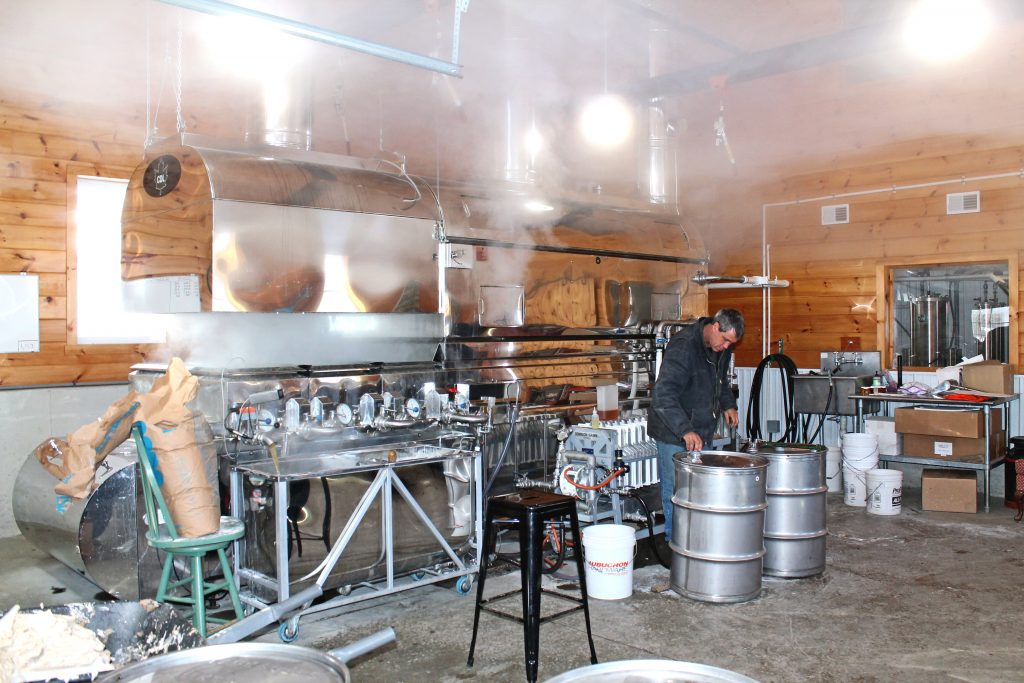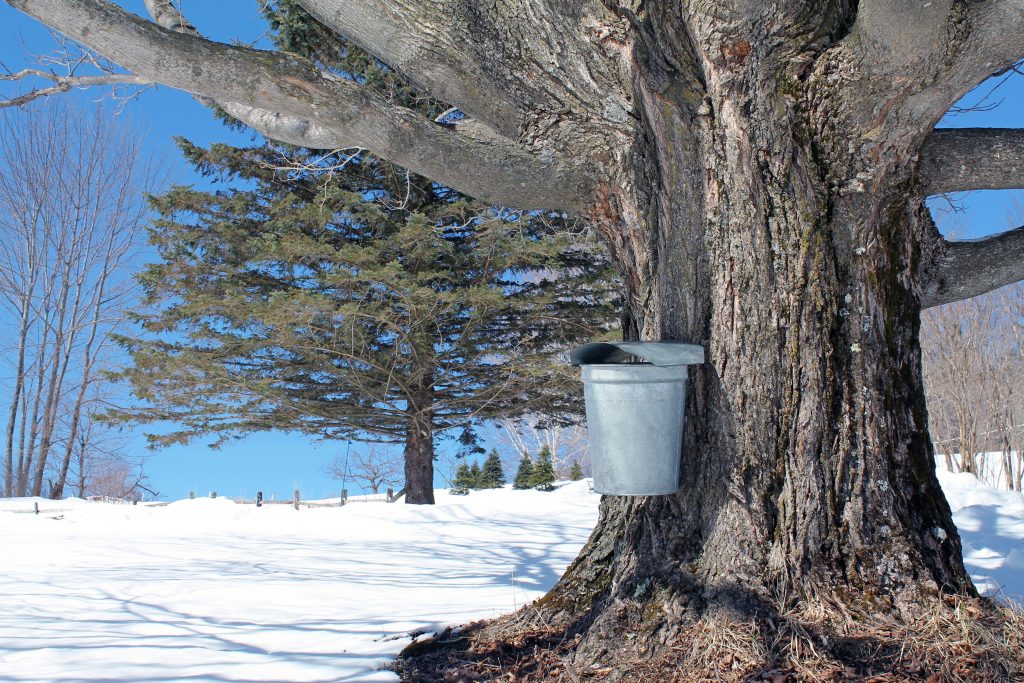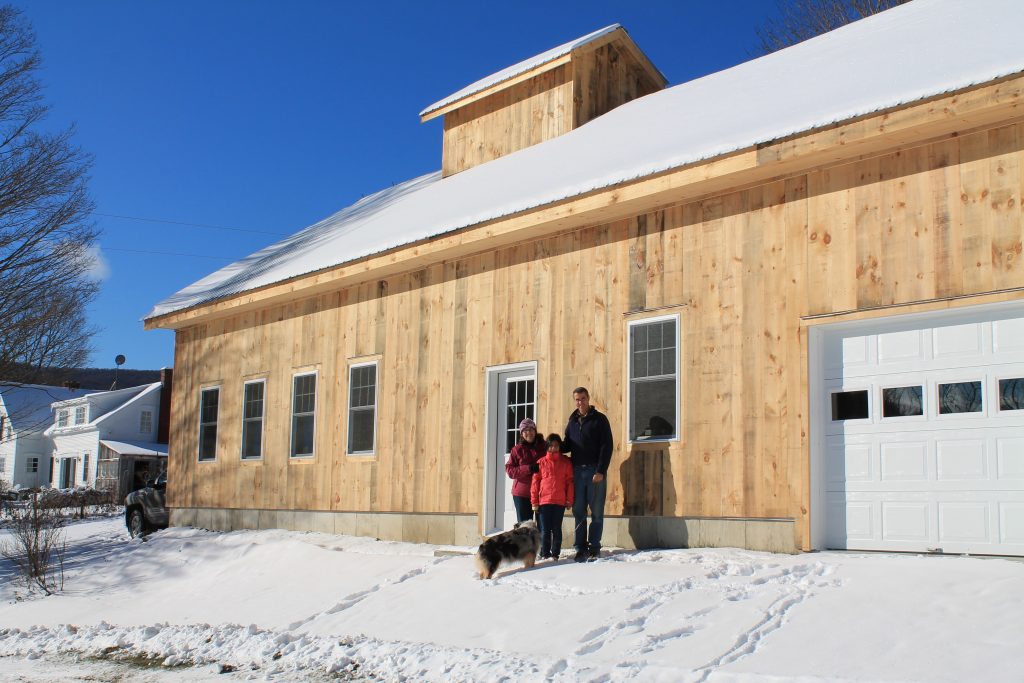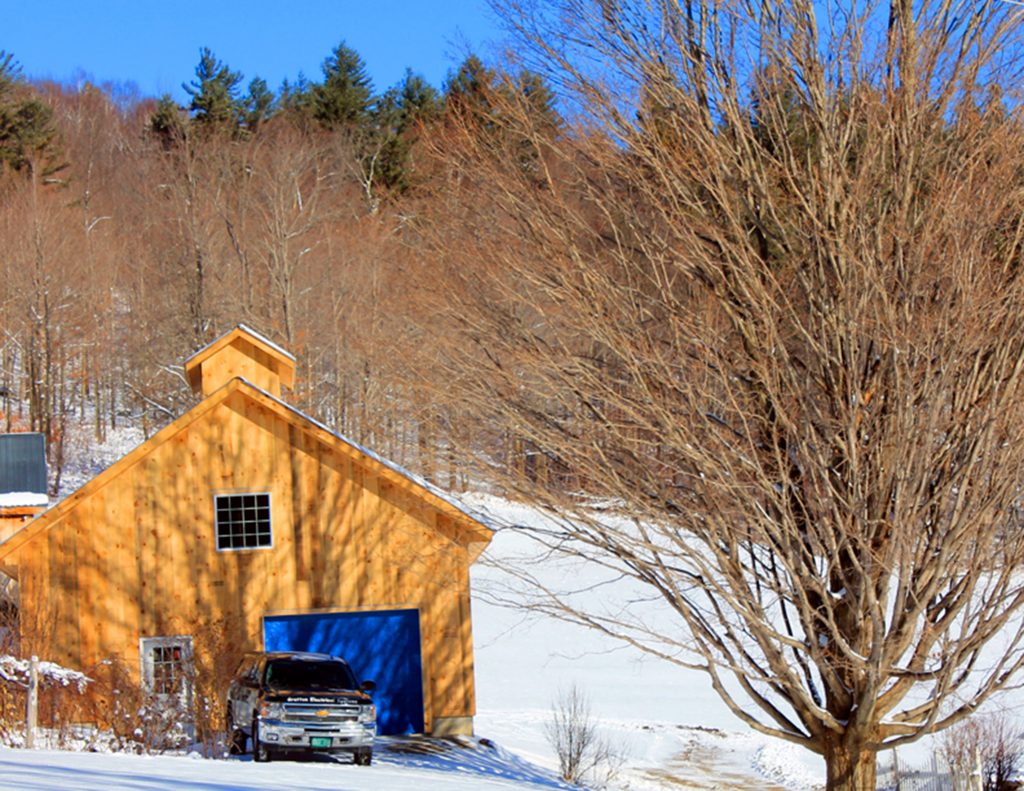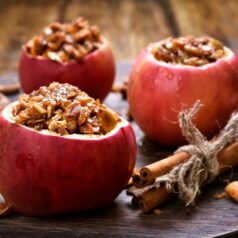
Baked Stuffed Apples
Drip, drip, drip….we can almost hear the maple sap beginning to collect in pails in sugarbushes across Vermont and our Weekly Sale from March 3rd – 9th celebrates the start of sugaring season with a handful of ingredients well suited to a hearty maple-themed breakfast! You’ll find local, organic, dark robust maple syrup quarts from Shaker Maple Farm; local apples from Champlain Orchards; local, organic granola from Patrick’s Artisan Bakery; local, organic Rogers Farmstead yogurt; local Brio coffee; and ham steaks that are just begging for a maple glaze. This recipe pulls together many of those ingredients into a Vermont breakfast spread that also doubles as a decadent dessert when you swap out the local yogurt with a scoop of Strafford Organic Creamery’s ice cream or Larson’s Farm & Creamery gelato.


